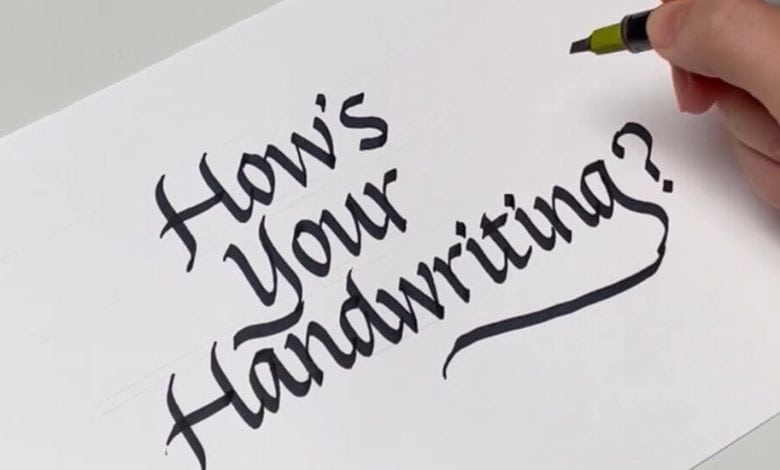The Ancient Art of Calligraphy Is Having a Revival

For the first time in many years, a teacher was correcting my handwriting.
“Go more slowly,” Laura Edralin, a calligraphy teacher in London, told me, as she walked around a table of beginners on a recent Wednesday night, explaining how to achieve even, flowing strokes.
As a breaking news reporter for The New York Times, I am not used to being told to slow down, nor am I accustomed to writing by hand. But both those new to the medium and seasoned calligraphers say the deliberate, steady nature of the practice is a huge part of its appeal — one that is on the upswing. With so much digital fatigue, writing elegantly with pen and paper can be a joy.
Calligraphy, a centuries-old art form, is seeing a surge of interest, including among young people more familiar with coding than cursive. At Michael’s, the largest arts and crafts chain in North America, more than 10,000 customers signed up for lettering classes online between January 2023 and March 2024 — nearly three times more than in the same period a year ago, when about the same number of classes were offered.
An increase in calligraphy-related posts on social media and the popularity of online classes may have helped drive the trend. On TikTok, where users can find how-to videos or watch clips of experienced calligraphers at work, 63 percent more posts used #calligraphy in April 2024 than in April 2023, according to TikTok. And on Instagram, top calligraphy influencers such as Nhuan Dao in Ha Noi, Vietnam, and Paola Gallegos in Cusco, Peru, have 2 million or more followers apiece (on TikTok, Gallegos has 9 million).
Rajiv Surendra, a calligrapher and actor (best known as the math M.C. Kevin G. in the 2004 film “Mean Girls”), said he was surprised to find that his how-to calligraphy videos were some of the most popular posts on his YouTube channel; one video on calligraphy basics has garnered more than 840,000 views.
